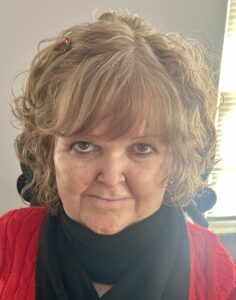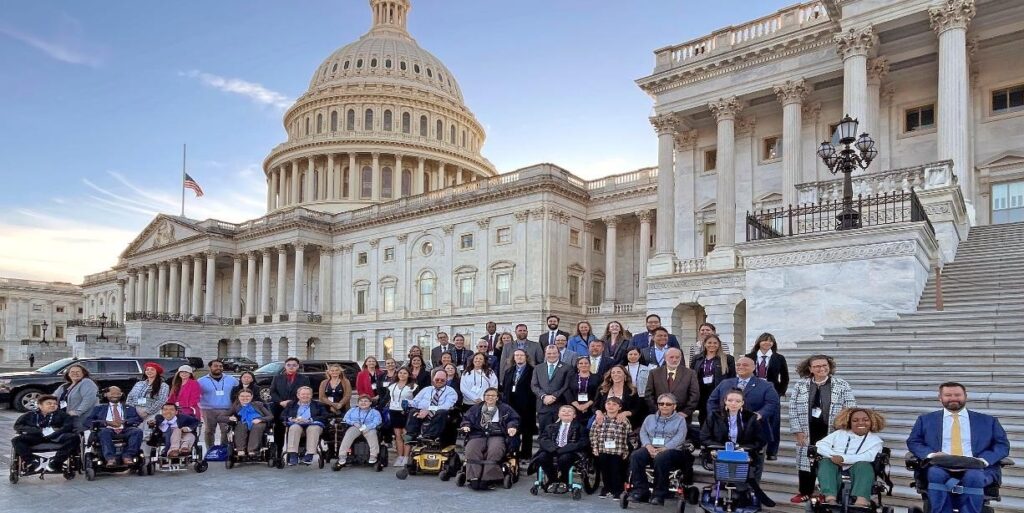
How to Manage Stress and Fear in Uncertain Times
By Matt Schur | Thursday, May 22, 2025
People in the neuromuscular disease community are hearing many different reports about policy and funding changes that could affect their lives or their loved ones. This has many people feeling uncertain.
“I see that the community is understandably concerned,” says Mark Fisher, MDA’s Director of Advocacy Engagement. “They’re nervous and worried that programs they rely on will be changed, underfunded, or removed altogether.” (Learn more about current issues impacting the neuromuscular disease community, and how MDA’s Advocacy team is addressing threats to Medicaid, research funding, education, and more.)
These worries naturally affect people’s well-being. In times of uncertainty, it’s important to practice self-care and develop strategies to build resilience.
Find the Goldilocks level of informed

Mark Fisher, MDA Director of Advocacy Engagement
In this climate, staying informed is essential to know what’s at stake. But there’s a balance between knowing what’s happening and getting so deep in the weeds that worry and fear occupy your thoughts too much.
“You have to give yourself permission to take a break from the news,” says Shannon Wood, MDA’s Director of Disability Policy. “There will always be more news waiting for you when you’re ready to plug back in. So listen to your body. Rest when it tells you to rest.”
To that end, Shelly Johnson, an MDA advocate living with muscular dystrophy, has changed her media consumption. Watching TV news channels was too intense, so she switched to only reading the news, allowing her more control over which news stories get her attention.
Mark’s advice? Pick only three or four issues to follow. “If you try to follow everything, you’re going to be overexposed,” he says. “Pick the issues you care about the most and commit to them. But know that for the rest of the issues out there, someone else is paying attention to them. Someone else is fighting for them.”
In that vein, Mark says, it’s not only OK to put your phone down to escape the daily news, it’s often necessary.
Manage stress and fear
When assessing how you are and what you need emotionally, Mark says that you should first recognize that whatever feelings you have in that moment are legitimate. Extending that grace to yourself is the foundation of self-care.

Shannon Wood, MDA Director of Disability Policy
To manage stress and fear, Shannon turns to mindfulness and consciously acknowledges that some things are beyond her control. “You have to think about how to fill yourself back up,” she adds.
Such compartmentalizing likely looks different for everyone. It could involve watching TV shows or reading books you enjoy, hanging out with friends and family, taking up a craft, or playing with a pet.
In addition to investing in your hobbies and interests, it is worthwhile to invest in others. “I think this is a really good time for people to reinvest in their friends and family, their community, and the things and people who have their back,” Mark says.
Shannon says that it’s incumbent on all of us to invest in building community. Prioritizing relationships with people who make her feel understood and validated “reminds me that I’m not alone at the end of the day,” she says.
Faith is important to Shelly, so the idea of compassion and looking after one another has helped her in similar situations. “I do a lot of service work, which makes me feel good,” Shelly says. “Any time we’re making human connections with other people and trying to lift them up in some way, we can’t help but walk away from that also feeling lifted.”
Cultivate a sense of purpose

Shelly Johnson, an MDA advocate living with muscular dystrophy
Another way to address feelings of anxiety and fear is to get involved in advocacy on the issues that are causing them.
“We can do things on a daily, weekly, or monthly basis, whatever our schedules allow, to advocate for the issues we feel strongly about,” Shelly says. “It helps me to feel that I’ve done my part. I can’t complain or be sad if I’m just sitting by and letting things happen.”
Mark and Shannon have witnessed this call to action firsthand. “I see a lot of people deciding to act on that nervousness,” Mark says. “They’re not idle. They’re making their voices heard, they’re sharing their thoughts with elected lawmakers, and they’re showing up.”
For those who aren’t sure how to start, Mark’s advice is simple: Just take the first step.
MDA makes those efforts easy and comfortable, with advocacy pages dedicated to contacting lawmakers, getting in touch with the advocacy team, and more. Some steps are as simple as typing in an email to send a letter to your elected officials.
“Your lawmakers want to hear from the people they represent. They want to know your concerns,” Mark says.
These grassroots advocacy efforts are already paying off. While there’s still a long way to go, Medicaid is at the forefront of conversations around spending cuts. “That happened because people were speaking up and talking about the threat to an important program,” Mark says. “We have seen it over many decades: When organizations, groups, and people speak up, officials will listen.”
This shared community around advocacy is giving Mark, Shannon, and Shelly hope. As Shannon says, “History teaches us that we can overcome challenges when we work together. History is filled with examples of everyday people rising up, speaking up, and demanding better.”
Next Steps and Useful Resources
- Find mental health resources for the neuromuscular disease community in MDA’s Mental Health Hub.
- Looking to stay informed? MDA’s Action Network is a grassroots movement where you can find the latest updates, learn about opportunities to take action, and have your voice heard in the policy process.
- Listen to a Quest Podcast conversation about defending Medicaid with the MDA Advocacy team.
- Read the Top 5 Things to Know About MDA’s Efforts to Protect Medicaid on the Quest Blog.
- Stay up to date on Quest content! Subscribe to Quest Magazine and Newsletter.
Disclaimer: No content on this site should ever be used as a substitute for direct medical advice from your doctor or other qualified clinician.




